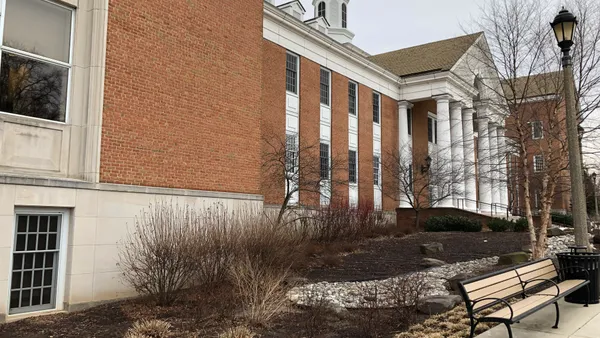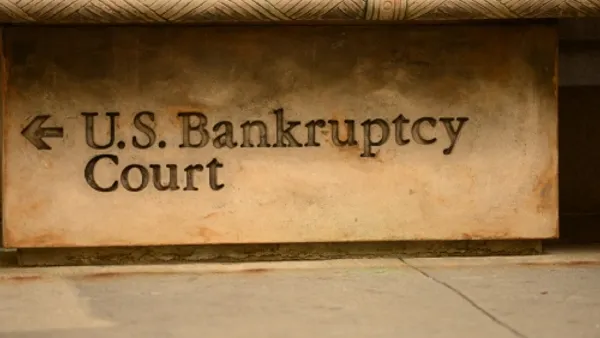Dive Brief:
- The American Bar Association's accrediting arm granted the Syracuse University College of Law approval to create a J.D. program in which two-thirds of the coursework (66 credits out of 87) is taken online, reports Inside Higher Ed. Syracuse now is one of only three law schools the ABA has given such approval, with Mitchell Hamline School of Law being the only one to have enrolled and graduated students, according to The Star Tribune.
- The ABA said it is considering loosening restrictions on distance learning in J.D. programs, as the current limit for the roughly 204 ABA-accredited law schools is 15 online credits, with some small variances having already been allowed.
- Despite critics' concerns that legal education requires use of the in-person Socratic method, the ABA's willingness to give accredited status to distance and blending learning in high-quality programs reflects online education's staying power. Inside Higher Ed reports nearly a third of all college students take at least one course online and the amount of fully online bachelors and postgraduate degrees is steadily increasing.
Dive Insight:
Earlier this year, Education Dive spoke with Michael Horowitz, president of the TCS (The Community Solution) Education System, a nonprofit group where the backbone organization handles economies of scale for partner institutions, including investment in online professional degree programs for many brick-and-mortar schools. He explained there's a growing demand for advanced credential programs in distance learning. But the transition can include a number of barriers due to the programs' highly professional nature — an issue that can often come up with accrediting agencies that are scrutinizing the efficacy of online programs.
"A lot of our programs are in professional-regulated disciplines, like psychology, counseling, law and nursing. What is fascinating is that some are moving toward greater adoption of online. Some are very limited and facing barriers doing this," said Horowitz. "The Santa Barbara & Ventura Colleges of Law which we are working with through a collaborative grant is working through the approval process for the first hybrid online ground J.D. program in the state of California. They aren't ABA accredited, however, which gives them some greater flexibility; they were accredited by WASC and the California bar instead."
"But, in other fields like clinical psychology [...] hardly any online is allowed. And then there are things, we have online programs in the law school — a master of legal studies, which is 100% online, but it doesn't lead to a law license or degree. So, it's a real balance."
Though distance learning is becoming more popular, many in professional-level education circles, like in legal education, still demonstrate hesitation around online because advanced programs are meant to graduate qualified professionals. And with figures showing the unstable state of online student retention, the digital classroom may not be as effective as face-to-face instruction when it comes to keeping students, particularly those in rigorous curricula, on track.
It's for this reason it's critical to consider how digital learning platforms align with institutional goals when being scaled and whether they present value add for students' postsecondary experience. Working adults who want advanced credentials may find online law classes appealing, but the traditional student may not. As Horowitz explained:
"The online component is supposed to be additive to the quality of instruction. In our approach, online is organic and layered in. We first and foremost ask, 'Do the students want this?" he said. "When it comes to our students, they are in their 30s. They are committed and they know what they want and are more receptive to online."












